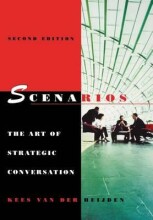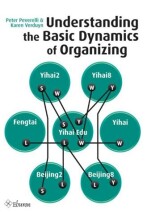Summary: Scenarios : The Art Of Strategic Conversation | 9780470023686 | Kees van der Heijden
- This + 400k other summaries
- A unique study and practice tool
- Never study anything twice again
- Get the grades you hope for
- 100% sure, 100% understanding
Read the summary and the most important questions on Scenarios : the art of strategic conversation | 9780470023686 | Kees van der Heijden.
-
1 Part one: the context
-
1.1.1 Robust decision making
-
What is the aim of SP?
The aim is to develop projects that are likely to have positive returns under any of the scenarios.
Decisions are never based on one scenario being more likely than another; project developers optimise simultaneously against a number of different futures which are all considered equally plausible and treated with equal weight.
Both value and the downward potential of the project are assessed.
-
What is the first objective of SBP?
The first objective of SBP became the generation of projects and decisions that are more robust under a variety of alternative futures.
-
1.1.4 Energising management
This is a preview. There are 2 more flashcards available for chapter 1.1.4
Show more cards here -
Early influencing the top management is not exercised by means of direct instructions, but by using......?
Scenarios to set the context within which decisions are made down the line.
-
1.1.5 Scenarios as a leadership tool
This is a preview. There are 1 more flashcards available for chapter 1.1.5
Show more cards here -
Focused scenarios are not directly related to the global scenarios used by top management to establish the overall strategic framework. What are focused scenarios then?
- Focused scenarios are more ad hoc nature, developed by departments to aid in lower-level decision making.
- The company is satisfied to let scenario analysis take place at different levels in this way without trying to connect these efforts formally.
- What matters at Shell is the thinking process rather tha the bureaucracy of planning.
-
What evolved in Shell?
Strategic thinking and strategic tools in Shell have co-evolved in the company. Better tools have created more effective thinking, and enhanced conceptualisation has created room and demand for superior tools.
-
Shells common sense/ Basic assumptions SP
- Possessing sound strategies reduces the complexity of the management task rather than adding to it. Investing time in structuring the strategic debate will pay off many times over in increased efficiency of dealing with the day to day issues managers facing.
- Discussing strategy is a natural part of any management task, and not the exclusive domain of specialists.
-
1.2.1 Why plan?
-
According to Janis & Mann 1977, when is a decision vigilant?
- Reasons are rational (i.e. are explicit and intelligible, have logical coherence and are congruent with existing knowledge).
- Reasons stand up to appropriate search for relevant empirical data.
- Reasons take account of future indeterminacy (contingency planning).
-
1.2.2 Scenario-based planning is "learning".
This is a preview. There are 6 more flashcards available for chapter 1.2.2
Show more cards here -
What is the purpose of strategising?
The purpose is to develop policies guiding personal behaviour of individuals in the organisation such that the total system achieves and maintains a good and unique fit in a situation of uncertainty and ambiguity.
-
Whicht six points does the common sense for SBP require?
1. Acknowlegement of aims, either through an external mandate, or the organic purpose of survival and self-development.
2. Assessment of the organisations characteristics, including its capability to change.
3. Assessment of the environment, current environment & the future environment.
4. Assessment of the fit between the two.
5. Invention and development of policies to improve the fit.
6. Decisions and action to implement the strategy.
-
What is the most fundamenta aspect of introducing uncertainty in the strategic equation?
It turns planning for the future from a once-off episodic design activity into an ongoing learning proposition (Eden 1987).
Planning becomes learning, and learning never stops.
- Higher grades + faster learning
- Never study anything twice
- 100% sure, 100% understanding































